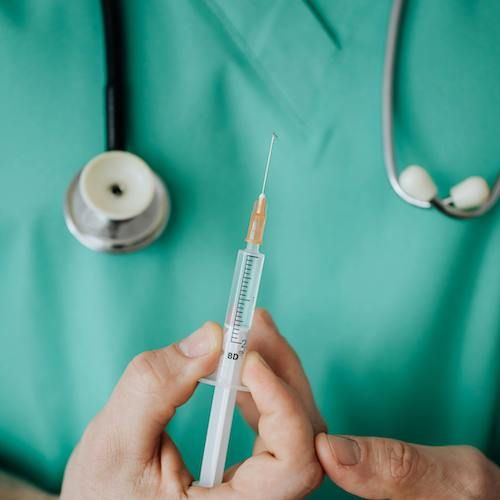News
Article
FDA Authorizes Autonomous AI for Portable Diabetic Retinopathy Screening
Author(s):
AEYE Health receives clearance for the first artificial intelligence solution to allow fully autonomous screening for diabetic retinopathy using a portable device.
Credit: US Food and Drug Administration

The US Food and Drug Administration (FDA) has cleared the first, fully autonomous artificial intelligence (AI) for portable diabetic retinopathy screening, with the ability to diagnose the disease from retinal images obtained by a handheld camera.1
Announced by AEYE Health on April 30, 2024, the AEYE Diagnostic Screening (AEYE-DS) technology marks the first autonomous AI solution to allow accessible screening anywhere using the Optomed Aurora portable device, after previously being cleared by the FDA for use with a tabletop imaging device.1,2
“This is the ‘holy grail’ of eye screening - fully autonomous AI, using either portable or tabletop retinal camera and a procedure that takes a minute to perform, alongside the best-in-class diagnostic efficacy,” Zack Dvey-Aharon, PhD, co-founder, and CEO, AEYE Health, said in a statement. “In the coming years, our fully autonomous screening technology will become standard across points of care in the US. We believe this innovation will prevent the blindness of millions of people in the US and around the world.”
More than 40 million people in the US and 500 million globally are impacted by diabetes—an estimated 85% of patients with diabetes ≥40 years of age will develop diabetic retinopathy.3 With timely detection, vision loss can be prevented, but a significant amount of diabetic people in the US are unable to obtain annual eye exams.
The fully autonomous AI combined with a portable handheld device could offer an affordable, point-of-care screening tool to address the leading cause of blindness in the working-age population, enabling screenings whether patients are at home or in the clinic.1
Clearance of the AEYE-DS for portable use is based on two large-scale, prospective, phase 3 studies, in which AEYE-DS exhibited best-in-class efficacy and imageability. Phase 3 showed diagnostic sensitivity was in the range of 92-93% and specificity was in the range of 89-94%.
Across both studies, the process took a minute to perform and more than 99% of patients received a diagnostic result. AEYE-DS is now the only solution that screens patients using just 1 image per eye, with over 99% imageability, and rarely requires dilation. Given its importance for public health, screening for diabetic retinopathy with AI is now reimbursable in the US using the newly approved, first-ever CPT code 92229 for autonomous screening.
“This is perhaps the most exciting FDA clearance I’ve seen in recent years. Such meaningful and impactful innovation – not only on the technology and clinical care front but also for population health,” Tsontcho A Ianchulev, MD, MPH, professor of ophthalmology at New York Eye and Ear of Mount Sinai, and board member of AEYE Health, said in a statement.1
In the release, Ianchulev also suggested a simple click without dilation, at the primary care clinic, pharmacy, or at home can provide instant information about diabetic retinopathy, offering the ability to streamline care services and reduce patient burden.
“Earlier systems have struggled because of efficacy, throughput, imageability, portability and need for dilation but we see a major leap forward technologically with this holy grail system that really has it all,” he added.1
References
- Health A. FDA clears first fully autonomous AI for portable diabetic retinopathy screening. PR Newswire: press release distribution, targeting, monitoring and marketing. April 30, 2024. Accessed April 30, 2024. https://prnmedia.prnewswire.com/news-releases/fda-clears-first-fully-autonomous-ai-for-portable-diabetic-retinopathy-screening-302131559.html.
- Health A. Aeye Health receives FDA clearance for AI-based autonomous screening for referable diabetic retinopathy. PR Newswire: press release distribution, targeting, monitoring and marketing. November 15, 2022. Accessed April 30, 2024. https://www.prnewswire.com/news-releases/aeye-health-receives-fda-clearance-for-ai-based-autonomous-screening-for-referable-diabetic-retinopathy-301678515.html.
- Shukla UV. Diabetic retinopathy. StatPearls [Internet]. August 25, 2023. Accessed April 30, 2024. https://www.ncbi.nlm.nih.gov/books/NBK560805/.
2 Commerce Drive
Cranbury, NJ 08512
All rights reserved.





